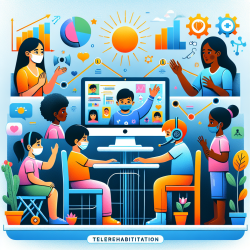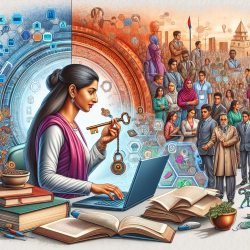Introduction
In the pursuit of enhancing educational outcomes for Deaf and Hard of Hearing (D/HH) students, a recent study titled Revisiting College Entry Testing to Increase Trained Deaf Teachers in the Classrooms sheds light on the challenges and opportunities in graduate admissions. The study examines the predictive validity of the Graduate Records Examinations (GRE) for D/HH students and suggests alternative approaches to better support their academic journey.
Key Findings
The research highlights several critical findings:
- GRE Limitations: D/HH students often score lower on the GRE, particularly in the verbal section, due to language acquisition differences. This underscores the need for alternative assessment methods that do not solely rely on GRE scores.
- Alternative Assessments: The Wechsler Adult Intelligence Scale (WAIS) was explored as a potential substitute for the GRE, offering a more equitable assessment for D/HH students.
- Predictive Validity: The study found no significant correlation between GRE scores and graduate performance for D/HH students, suggesting that GRE may not be a reliable predictor of success for this group.
Implications for Practitioners
For practitioners working with D/HH students, these findings offer valuable insights:
- Advocate for Alternative Assessments: Encourage educational institutions to consider alternative assessments, such as WAIS, personal statements, and interviews, to better evaluate the potential of D/HH students.
- Focus on Holistic Evaluation: Emphasize a comprehensive evaluation approach that considers a student's perseverance, creativity, and previous academic performance, rather than relying solely on standardized test scores.
- Supportive Learning Environments: Create inclusive learning environments that provide D/HH students with the necessary language and communication support to thrive academically.
Encouraging Further Research
The study opens the door for further research into effective assessment methods for D/HH students. Researchers are encouraged to explore:
- The impact of educational background and language proficiency on standardized test performance.
- Longitudinal studies to track the academic and professional success of D/HH students admitted through alternative assessment methods.
- The development of new assessment tools specifically designed for D/HH students.
Conclusion
As we strive to create equitable educational opportunities for all students, it is crucial to recognize the unique challenges faced by D/HH students in standardized testing. By embracing alternative assessment methods and fostering supportive learning environments, we can empower more D/HH individuals to pursue careers in education and beyond.
To read the original research paper, please follow this link: Revisiting College Entry Testing to Increase Trained Deaf Teachers in the Classrooms.










